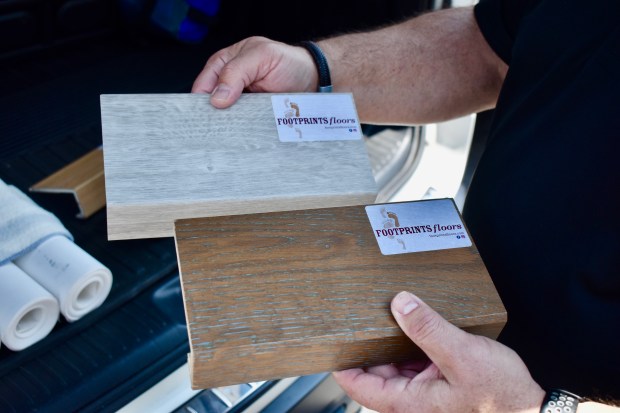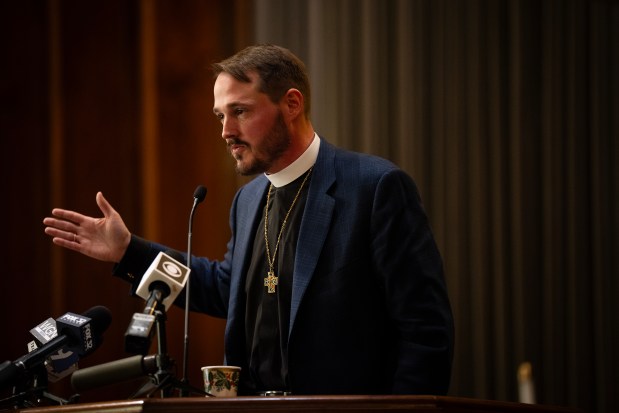Before we left on our most recent trip to our home country of England a couple of weeks ago, some American friends asked me what the British thought of King Charles and I had to admit I had no idea.
It’s not because they don’t have any opinions on the man who ascended the throne 17 months ago, but when I talk to people back home it tends to be about more mundane things, like why a budget grocery store chain in the UK thinks hot dog-stuffed pizza crust is a good example of American food during their USA week.
While I was there, I made a point of talking to friends about the king, which made it a little surreal when I was saying goodnight to my youngest granddaughter and the news of his cancer diagnosis flashed up on the TV. I automatically assumed it was prostate cancer as he had recently undergone prostrate treatment until the newscaster said it definitely was not.
The fact that the palace announced the cancer diagnosis without saying what type he has confused the public a little. It’s the same with the news about Princess Kate. They let everyone know she was heading into hospital (or THE hospital as we say here) for two weeks for a planned abdominal procedure but won’t say why. People are confused because it’s hard to think of any operation that wouldn’t allow her to recuperate at home within 24 hours, especially when she’ll have the best care in the country.
One can’t help but wonder why only half the royal news is being reported, but many polite Brits I know say it’s perfectly acceptable for them to retain some privacy because it’s very nice of them to bring awareness to important health issues.
While the good news is cancer survival rates in the UK are the highest they’ve ever been, progress on cancer survival has slowed to its lowest rate in 50 years, according to a new report from Cancer Research UK. In the 2000s, the increase in progress was five times faster than a decade later.
Regardless of having no idea what’s wrong with Princess Kate or the king, we all know they will receive the best of care whether in or out of hospital. That’s because as well as being royals, they have access to private health care, which has always been far quicker and more comfortable than the free National Health Service. During the pandemic, Brits who cheered and clapped for NHS workers from their front doorsteps now they live in fear and misery as they wait for access.
The Cancer Research UK report says more than a third of patients in England had to wait more than 62 days to begin cancer treatment after being referred for urgent diagnostic tests. More than one in 10 had to wait more than 104 days.
And not to spread the cliché about how bad the average Brit’s teeth are, but there was an interview on the news with a woman who pulled her own teeth because she couldn’t get an appointment with a dentist.
Beyond that, I couldn’t help but wince at the irony of Charles’ plight. He spent most of his life whistling, “I Just Can’t Wait to Be King,” and no sooner does he put on his coronation robes, he finds out he has a life-threatening illness. I know he’s talked about his desire to slim down the royal family, but this seems a bit extreme.
And why did Prince Harry fly over so quickly? Is there any truth to the rumor I’ve just made up that he handed his father a letter from Meghan listing all the reasons he should be the next king instead of William?
Anti-monarchists aside, the British public are happy with their new king and, perhaps more surprisingly, Queen Camilla. Once hated as “the third person” in Charles’ marriage to Diana, most Brits now think she’s doing a admirable job. Much like her late mother-in-law, Queen Elizabeth, she works hard and tries to steer clear of controversies. Instead of being the “other woman,” she seems to be the one Charles should have married in the first place.
Arguably William and Kate are even more popular, but the public is happy to wait until their time comes, especially so soon into Charles’ reign.
I don’t think the British get quite as excited about royalty, castles and palaces as Americans because we tend to take it all a bit for granted and don’t have Hallmark TV to stir up the romance of royal life. It’s as much a part of the fabric of England as a rainy day (eight out of nine during our stay) or a queue (line) for the bus.
But when one of the royal family comes under threat, we care as if they were one of our own. Charles may never be as revered as his late mother, but everyone wishes him well both in his new role and in his health.
Hilary Decent is a freelance journalist who moved to Naperville from England in 2007. Email her at hilarydecent@gmail.com.




